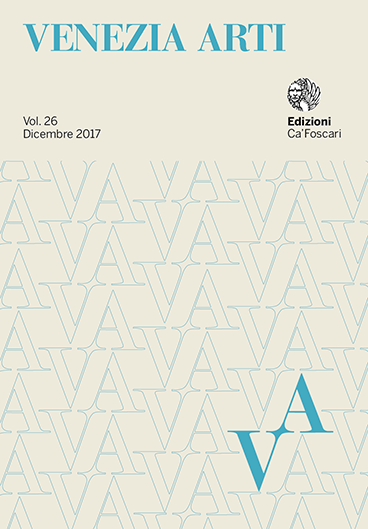Journal |
Venezia Arti
Monographic journal issue | 26 | 2017
Research Article | Why Was Jan van Eyck here?
Why Was Jan van Eyck here?
The Subject, Sitters, and Significance of The Arnolfini Marriage Portrait
Abstract
Jan van Eyck’s Arnolfini Marriage Portrait of 1434 still poses fundamental questions. An overlooked account explained the groom’s left hand holding his bride’s right hand as a secular, legal morganatic marriage with a bride of lower social rank and wealth. That would explain Van Eyck’s presence as witness in the mirror and through his inscription, and corresponds to the recent identification of the bride and groom as Giovanni di Arrigo Arnolfini and his previously unknown first wife Helene of unknown last name. Van Eyck’s scene can be called the first modern painting, as the earliest autonomous, illusionistic representation of secular reality, provided with the earliest artist’s signature of the modern type, framing his scene as perceived and represented by a particular individual. That is why Jan van Eyck was here.
Submitted: July 17, 2017 | Accepted: Sept. 21, 2017 | Published Dec. 20, 2017 | Language: en
Keywords Morganatic Marriage • Jan van Eyck • Signature • Arnolfini • Modern painting
Copyright © 2017 Benjamin Binstock. This is an open-access work distributed under the terms of the Creative Commons Attribution License (CC BY). The use, distribution or reproduction is permitted, provided that the original author(s) and the copyright owner(s) are credited and that the original publication is cited, in accordance with accepted academic practice. The license allows for commercial use. No use, distribution or reproduction is permitted which does not comply with these terms.
Permalink http://doi.org/10.14277/2385-2720/VA-26-17-7





